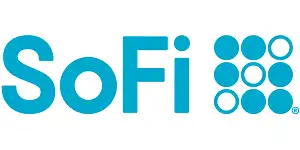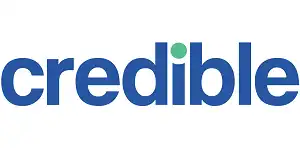Millions of Americans struggle to pay off their student loan balance, and our collective educational debt has now reached an officially-out-of-control $1.75 trillion. Yikes.
But if you have a solid credit history and a consistent income, a good student loan refinance could cut down your debt stress in a major way.
Student loan refinancing consolidates all of your individual student loans, with different servicers and due dates, into one easy-to-manage loan. Refinancing the right way should also reduces your APR and the total interest you will pay over the life of your loans.
Refinancing with the right lender can lower your interest rate, consolidate multiple loans into one monthly payment, and reduce your total monthly loan payments.
Time to turn your crawl toward debt-free life into a sprint.
SoFi student loan refinance: Best for unemployment protection
- Loan amounts: From $5,000
- Term lengths: 5, 7, 10, 15, or 20 years
- Credit score minimum: 650
- Eligibility requirements: Employed with a responsible financial history
SoFi makes student loan refinancing less intimidating by taking a comprehensive approach to underwriting. Get competitive fixed rates starting at 4.99% APR (with autopay) and lower your monthly payment with flexible terms that fit your budget.
- No origination fees
- No prepayment or late fees
- See your rate quickly with no commitment
- Allows co-signers, but no option for co-signer release for refinanced student loans
SoFi has generous payment protections as far as private lenders go. In addition to deferment options, they give you up to 12 months of loan forbearance if you unexpectedly lose your job. You can even apply for job placement assistance if need be.
SoFi also has special rates for medical and law students and MBAs. Medical residents can get low $100 monthly payments for up to four years.
» MORE: Get a refinance quote from SoFi now
Citizens Bank student loan refinance: Best for associate’s degree loan refinancing
 Loan amounts: $10,000 to $750,000, depending on degree type
Loan amounts: $10,000 to $750,000, depending on degree type- Term lengths: 5, 7, 10, 15, or 20 years
- Credit score minimum: Undisclosed
- Eligibility requirements: At least 12 complete qualifying payments after leaving school
Citizens Bank is one of the rare private lenders that will refinance loans you borrowed for an associate’s or two-year degree. They’ll even refinance your loans if you left your degree program without graduating, regardless of the program level. As long as you’ve made 12 full payments, you may be eligible.
Note that Citizens Bank doesn’t have a prequalification option, so you’ll need a hard credit check to confirm your eligibility.
Earnest student loan refinance: Best for fair credit
 Loan amounts: $5,000 up to total outstanding loan balance
Loan amounts: $5,000 up to total outstanding loan balance- Term lengths: 5, 7, 10, 15, or 20 years
- Credit score minimum: 680
- Eligibility requirements: Be employed and current on your payments, without bankruptcies on your credit report or accounts in collection.
Earnest’s loan underwriting uses a combination of financial factors that go beyond credit, including career earning potential and bank account data. For fair-credit borrowers who are getting their finances in shape, Earnest may be a good option.
Like SoFi, Earnest offers deferral and forbearance options, including up to 12 months of unemployment protection. As a bonus, there are no late payment fees. And you can skip one payment a year (though you’ll still owe interest).
» MORE: Earnest review
Laurel Road student loan refinance: Best for healthcare professionals
 Amounts: $5,000 up to full outstanding loan balance (depending on degree)
Amounts: $5,000 up to full outstanding loan balance (depending on degree)- Term lengths: 5, 7, 10, 15, or 20 years
- Credit score minimum: 660
- Eligibility requirements: Graduated or enrolled in final term before graduation; employed or with an employment offer
Though any eligible borrowers can refinance with Laurel Road, the lender is best known for the deals it offers to healthcare professionals. Doctors, dentists, nurses, and other borrowers in healthcare fields get special rate discounts, and are offered the option to refinance as soon as they begin a residency or fellowship.
Laurel Road also offers $100 monthly payments for six months after your residency ends.
Credible student loan refinance: Best for comparing rates from multiple lenders
- Amounts: From $5,000
- Term lengths: 5, 7, 10, 15, or 20 years
- Eligibility requirements: Varies by lender, but generally you should have verifiable income and a debt-to-income ratio below 50%.
You can use Credible to compare refinancing offers from multiple lenders at once. Each lender has different benefits and interest rate ranges, so if one Credible lender can’t give you the interest rate you’re looking for, another one might.
Rates starting at 5.28% fixed APR (with autopay)* and 5.28% Var. APR (with autopay) See Terms*.
- Single application form
- Personal information is not shared
- 100% free to use
- Limited lending opportunities
Credible is a loan marketplace, not a lender itself. You can use Credible to compare refinancing offers from multiple lenders at once. Each lender has different benefits and interest rate ranges, so if one Credible lender can’t give you the interest rate you’re looking for, another one might. Some lenders even offer flexible repayment plan options or interest-only repayment periods.
» MORE: Refinance your student loan with Credible now or read our full Credible review
PenFed student loan refinance: Best for married couples combining loans
 Amounts: Up to $300,000
Amounts: Up to $300,000- Term lengths: 5, 8, 12, or 15 years
- Credit score minimum: 670
- Eligibility requirements: Membership in Pentagon Federal Credit Union (PenFed) which requires a savings account with at least $5; an annual income of at least $25,000 with a cosigner or $42,000 without a cosigner
PenFed is one of the nation’s largest credit unions. Solo borrowers can apply, but PenFed’s niche is spousal loans. Married couples can often save money by combining their separate loans into a single refinanced loan. PenFed allows you to refinance federal and private loans together; if, for instance, your spouse has federal loans and you have private loans, this should be useful.
Note that spouses aren’t eligible for cosigner release. A non-spouse cosigner can be released after 12 on-time payments.
When to refinance student loans
Although anyone with at least $5,000 of student loans may be eligible to refinance, if you have a lot of student debt and/or high interest rates on some or all of your loans, you should definitely consider refinancing. Not only will refinancing make your life easier — you’ll have one student loan payment to consider, not a handful — it will likely save you a huge amount of money.
Essentially, student loan refinancing makes sense if you have:
- More than $10,000 in combined federal and private student debt
- An average APR of 6% or more
- A reliable income or a cosigner
But even if you fit the above criteria, there are a few situations in which student loan refinancing might not make sense.
If you’re already having difficulty making your student loan payments, there’s a good chance you won’t qualify for student loan refinancing. This is when you should look at reduced loan repayment options or forbearance on your federal student loans until your cash flow improves.
And if a large percentage of your loans are subsidized federal loans, think carefully before refinancing. Refinancing means you will lose all of the benefits unique to federal loans including deferment, forbearance, income-based repayment, and access to federal student loan forgiveness programs, like President Biden’s loan forgiveness plan. This plan will forgive up to $20,000 in loans for each borrower who applies, but only if they have federal loans.
Finally, since federal student loan payments and interest were paused, federal borrowers should wait until that concludes to refinance. As soon as you refinance, your loan payments will start up again, including interest.
How much can I save by refinancing?
How much you’ll save by refinancing student loans depends on a lot of factors, such as:
- Your existing loan balance(s) and interest rate(s)
- The interest rate at which you refinance
- The term of your refinance loan (how many years you’ll take to repay)
- Whether you make any early payments on your new loan
The lower your refinance interest rate and the faster you repay your student loans, the less interest you’ll pay overall. Here’s an example:
Let’s say your original loan is $40,000, which is about average for all borrowers, federal and private. You have a 6% interest rate (also about average) and a 10-year repayment term, with a monthly payment of $450.
Per our student loan refinance calculator, with this original loan you’d pay $13,050.73 in interest throughout the course of the loan term. That’s on top of the $40,000 principal.
Now, say you refinance at a 4.5% fixed interest rate. That’s enough to drop your total interest payments on the loan to $9,746.44, for a savings of $3,304.29.
And you could save even more by shortening your term to seven years and increasing your monthly loan payment by a little more than a $100. With that more aggressive repayment plan you’d save $6,346.19 in interest compared to what you would have paid in the original loan.
How to refinance student loans
Applying for student loan refinancing is like applying for any other loan or line of credit. You’ll need to:
- Find a lender offering competitive loan terms that will save you money.
- Submit an application that documents your loan balance(s), employment, and financial accounts.
The lender will then evaluate your application and run a credit check. If you are approved to refinance, the new lender will pay off your old loans and you will have one new student loan with one due date and one interest rate.
The refinancing process is similar regardless of whether you originally had private or federal loans (or both), but the outcome of the refinance can vary depending on the type of loan you previously held.
How to refinance private student loans
Private student loans often make more sense to refinance than federal loans, since you won’t lose built-in protections. Unless your current lender has particularly generous terms, you typically have nothing to lose by switching lenders.
First, see if another lender will give you a better interest rate. Most lenders offer prequalification, where you can check your potential rate without a hard credit pull. Once you’ve found a new lender, put in a formal application for refinancing.
How to refinance federal student loans
The process of refinancing federal student loans is more or less the same as refinancing private loans. Find a lender whose interest rates and terms look promising, and fill out their application.
As soon as you refinance, a private lender takes over your loans. This means you’ll lose any federal student loan protections you qualify for, including income-based repayment plans and Public Service Loan Forgiveness. The switch may be worth it to get a better interest rate, but keep the risk in mind.
If you have multiple loans with different interest rates, it may make sense to refinance some but not all of them (for instance, to only refinance the loans with high rates).
How to refinance student loans with bad credit
Some private lenders are more forgiving of bad credit than others. Lenders don’t always disclose the minimum credit rating they’ll accept, but a 650 score is a common minimum. If your score falls in a lower range, here are a few tips:
- Check your potential interest rate through a prequalification or preapproval process. This doesn’t affect your credit score, while a formal application does.
- Find lenders who look at other data, like employment and debt-to-income ratio. If you have a reliable income and a comparatively small amount of debt, that could help make up for bad credit.
- If possible, apply with a cosigner. Most private lenders allow cosigners, and many will let you release a cosigner from their obligation after you’ve made a certain amount of on-time payments.
FAQs about student loan refinancing
Should I refinance my student loans?
Refinancing may be a smart idea if most or all of these circumstances apply to you:
- You have high-interest private student loans.
- You have federal loans, but you can qualify for a lower interest rate with a private lender.
- You want to combine separate student loan payments into a single payment.
- You have a good credit score.
- You’re employed with a steady income.
How much does it cost to refinance student loans?
Refinancing is completely free. You won’t pay for pre-qualification or the actual application, and most reputable lenders skip the origination fees these days.
Still, depending on your lender, you may have to pay fees for late or returned payments. If you want flexibility to make a late payment now and then without racking up charges, look for a lender that states their lack of late payment fees upfront.
How long does it take to refinance student loans?
The whole process can take anywhere from two weeks to a couple of months.
You won’t need to invest much time. Pre-qualification checks and applications don’t take more than 15 minutes apiece, if that. The lender just needs time to process the loan on their end.
Until you’ve confirmed that the process is complete, keep making payments on your old loan as usual.
How often can you refinance student loans?
You can refinance student loans as many times as you need to; there’s no official limit.
One of the most common reasons people refinance multiple times is to take advantage of lower interest rates. If variable rates hit an all-time low, you can capitalize on these rates even if you’ve refinanced before.
You might also re-refinance if your credit has improved significantly. Better credit almost always gets you lower rates.
Can you refinance a federal student loan?
You can refinance federal student loans, but only if you go through a private lender. The private lender pays off your old loan and issues you a new loan with new terms and a new interest rate.
Once you’ve refinanced, you can’t return to the federal student loan program. This means you’ll lose access to federal loan benefits. However, if you don’t need or use these benefits, refinancing federal loans may be worth it.
Summary
Exploring your student loan refinance options is wise, as you could save thousands if you qualify. And it’s easy to explore your student loan refi options before you commit. Looking up your personalized rates and monthly payments usually won’t affect your credit, so you can play around with the numbers to decide if refinancing is right for you.

 Loan amounts: $10,000 to $750,000, depending on degree type
Loan amounts: $10,000 to $750,000, depending on degree type Loan amounts: $5,000 up to total outstanding loan balance
Loan amounts: $5,000 up to total outstanding loan balance Amounts: $5,000 up to full outstanding loan balance (depending on degree)
Amounts: $5,000 up to full outstanding loan balance (depending on degree)
 Amounts: Up to $300,000
Amounts: Up to $300,000